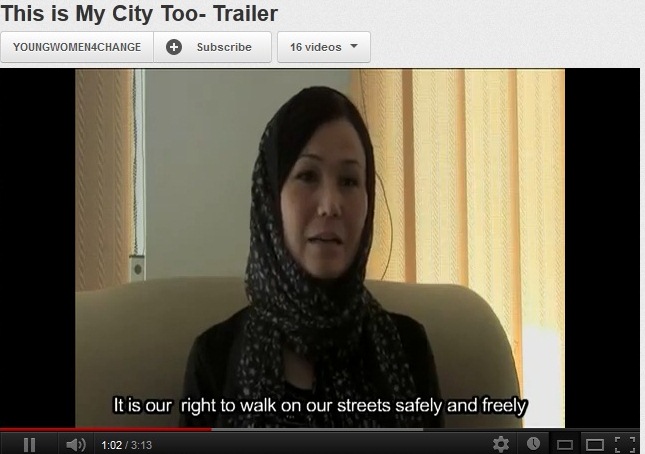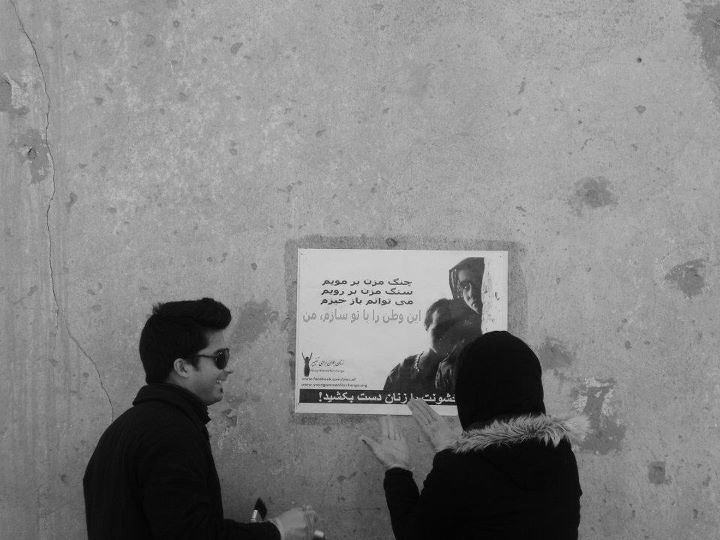 The Afghanistan-based organization Young Women for Change celebrates its one year anniversary this week! The young women who lead the organization continue to make street harassment one of their central issues of concern (read an article by co-founder Noorjahan Akbar about her harassment experiences). Below are two new videos they produced about street harassment, with English subtitles.
The Afghanistan-based organization Young Women for Change celebrates its one year anniversary this week! The young women who lead the organization continue to make street harassment one of their central issues of concern (read an article by co-founder Noorjahan Akbar about her harassment experiences). Below are two new videos they produced about street harassment, with English subtitles.
They’ve conducted a 4,000 person study about street harassment in Kabul and it will be released this summer at a press conference event. This is the largest study on the topic that’s ever been conducted. If you can, please donate a few dollars to them as the funds will enable them to print women’s stories and the survey results and then hand those out to attendees and people in the streets. Most Afghans do not have computers/Internet access so print materials is the best way for Young Women for Change to spread their message.






